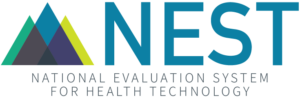Feasibility of Using Real-World Data to Evaluate Thermal Ablation of Liver Tumors

- Technology of Interest
Ablation Device
- Disease Area
Surgery
- Network Collaborators
Duke University Health System, Vanderbilt, Mayo Clinic, Weill-Cornell
- Duration
16 months
- Status
Complete
Overview
This Test-Case assessed the ability of the NESTcc Research Network to reliably and validly capture real-world data (RWD) on class II surgical devices with a general indication for use to study the safety and effectiveness to support a more specific indication.
The Device of Interest is intended for the ablation (coagulation) of soft tissue via percutaneous, open surgical, and laparoscopic techniques. The product is a class II medical device and entered the market through the 510(k) pathway. FDA has not required clinical data to clear any thermal ablation products with a general soft tissue indication. The product is used in real-world medical practice to ablate several types of soft tissue lesions, including cancers, especially in the liver. The use of thermal ablation to treat unresectable liver tumors is supported by multiple national and international treatment guidelines and standards of care. However, no thermal ablation device currently has an indication that includes the treatment of benign and malignant non-resectable liver tumors.
This Test-Case explored the feasibility of generating evidence on the use of this product for the ablation of non-resectable liver tumors, either benign or malignant. The feasibility assessment examined if the NESTcc Network Collaborators could capture the necessary data elements, if the data were of appropriate quality (e.g., reliability and relevance), and if there was a sufficient population for a representative sample to support future regulatory submissions to expand the indications for use and inform physicians about treatment options for patients.
NEST RWE FORUM PRESENTATION
Watch the Test-Case research team’s presentation from the NEST RWE Forum on May 20, 2021.
